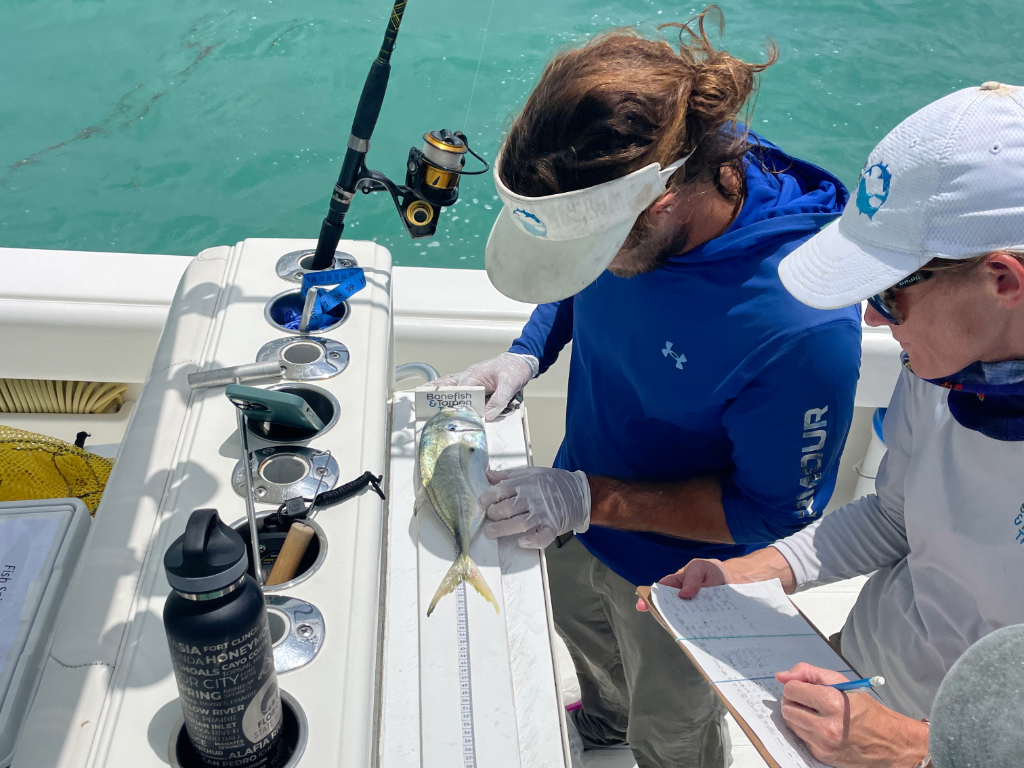Bonefish & Tarpon Trust (BTT) and several partners are collaborating on new research to address a suspected toxin affecting multiple Florida Keys fish species with abnormal “spinning” behaviors. The inter-institutional study is funded by $1.75 million that was awarded to BTT by the State of Florida through the Florida Fish and Wildlife Conservation Commission (FWC) to research the scale and scope of the ongoing mortality and disease event in Biscayne Bay, Florida Bay, and the Florida Keys. Specifically, the funds will support data collection and analysis, and employ local fishing guides to assist with sampling efforts.
“BTT appreciates the rapid response and robust funding provided by the Florida Legislature to address this unprecedented concern affecting our fisheries,” said Jim McDuffie, BTT President and CEO. “We are also grateful for interim funding provided by the Florida Department of Environmental Protection (FL DEP), the American Sportfishing Association and private donors as well as the unwavering commitment of the Florida Fish and Wildlife Conservation Commission.”
BTT and the Lower Keys Guides Association (LKGA) received the first report of fish in the Florida Keys exhibiting abnormal, spinning behavior in early October 2023. Fish with the “spins” experience loss of equilibrium, causing them to swim upside down in repeated circles, often following a stressful or stimulating event.
In response, an ongoing, inter-institutional research study to identify the cause of these symptoms was launched in January 2024. Partners include BTT, LKGA, Florida Gulf Coast University (FGCU), University of South Alabama (USA), Florida International University, Woods Hole Oceanographic Institute (WHOI), FL DEP, and FWC.
To date, more than 60 species have exhibited these abnormal behaviors, including smalltooth sawfish, silver mullet, tarpon, permit, snook, bonefish, jack crevalle, southern stingray, mutton snapper, mangrove snapper, cubera snapper, redfish, and lemon shark.
“While there has been a decrease in reports of affected fish over the summer, BTT and partners are still seeking the underlying cause of this concerning spinning behavior. State funding will allow research and response teams to stay vigilant as we move into cooler months, while continuing investigations into the causes that resulted in the single biggest smalltooth sawfish mass die-off ever recorded,” said Dr. Ross Boucek, Director of BTT’s Florida Keys Initiative. “As we continue our research, we encourage folks to share any unusual fish behavior to FWC or LKGA.”
BTT continues to work closely with over 180 local professional fishing guides and captains across the Florida Keys to track the spread and intensity of the spinning fish phenomena through a Rapid Response Network launched in April 2024. This has allowed BTT to track the phenomenon throughout the Florida Keys, and target collections of fish and water samples from these expansion fronts prior to it diminishing in the summer. Local fishing guides are supporting BTT in routine research trips to survey conditions in inshore waters and collect needed samples to better understand this event.
For the latest information, visit BTT.org/spinning-fish.




